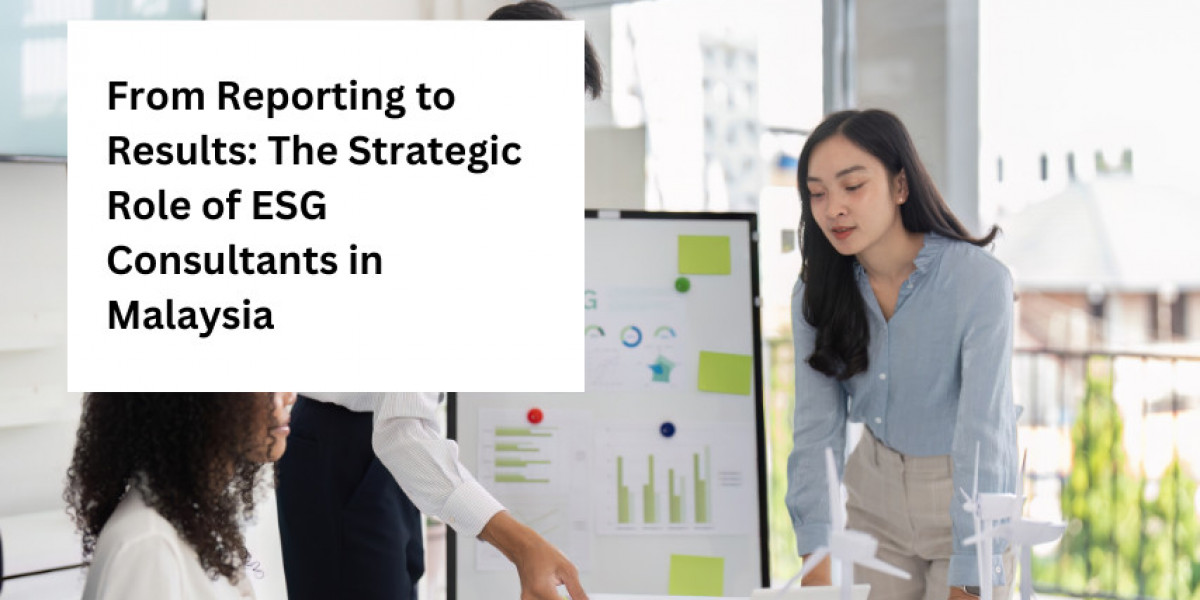The role of ESG consultants in Malaysia has evolved far beyond mere reporting compliance. As businesses navigate the complex landscape of environmental, social, and governance requirements, these specialists are becoming strategic partners in driving sustainable transformation.
Did you know that while 76% of Malaysian companies report on ESG metrics, only a fraction effectively integrate these practices into their business strategy? We're here to bridge this gap.
Whether you're a large corporation on Bursa Malaysia's Main Market or an SME taking your first steps toward sustainability, understanding the strategic value of ESG consultants is crucial for your business success.
In this guide, we'll explore how ESG consultants are helping Malaysian businesses transform reporting obligations into strategic advantages, navigate complex regulatory frameworks, and create lasting sustainable impact.
Core Components of ESG Framework Implementation
Environmental Considerations
The environmental component of an esg framework focuses on measuring and managing a company's impact on the natural world. In Malaysia, organizations must assess their carbon footprint, resource consumption, and waste management practices. This includes tracking Scope 1, 2, and 3 emissions, though many companies currently struggle with comprehensive emissions reporting.
Companies implementing effective esg practice must establish clear environmental metrics and targets. This involves monitoring energy efficiency, water usage, and biodiversity impact. According to recent esg disclosure assessment of malaysia reports, leading companies are increasingly adopting science-based targets for environmental performance.
Social Impact Assessment
The social dimension evaluates how organizations interact with employees, customers, and communities. Malaysian companies must address labor practices, workplace safety, diversity and inclusion, and community engagement. This component requires regular stakeholder engagement and transparent reporting on social initiatives.
Organizations need to develop comprehensive social impact measurement systems. This includes tracking employee satisfaction, turnover rates, and training investments. The assessment should also cover supply chain management and human rights considerations, which are becoming increasingly important in Malaysia's business landscape.
Governance Structure
Strong governance forms the foundation of successful ESG implementation. This involves establishing clear oversight mechanisms, risk management processes, and accountability frameworks. Malaysian companies must ensure their board structure supports effective ESG integration and monitoring.
Key governance elements include:
- Board diversity and independence
- ESG committee formation
- Regular performance reviews
- Transparent reporting mechanisms
- Stakeholder communication channels
Recent studies show that companies with robust governance structures demonstrate better ESG performance and risk management capabilities. This correlation highlights the importance of establishing strong governance foundations for successful framework implementation.
Strategic Value Creation Through ESG Consulting
Business Integration Approaches
ESG consulting plays a pivotal role in helping Malaysian businesses transform sustainability initiatives into a core strategy that drives competitive advantage. By integrating ESG principles into the business model, consultants help organizations move beyond mere compliance to create lasting impact. This integration process involves analyzing existing operations, identifying gaps, and developing tailored solutions that align with the company's objectives.
Successful ESG integration requires a systematic approach that considers both immediate operational needs and long-term value creation. Consultants work closely with management teams to embed sustainable practices into daily operations, ensuring that ESG considerations become an integral part of decision-making processes rather than an afterthought.
Risk Management and Opportunities
ESG consultants help Malaysian companies identify and manage potential risks while uncovering new opportunities for growth. Through comprehensive risk assessments, they enable businesses to anticipate and mitigate environmental, social, and governance challenges that could impact their operations.
Beyond risk management, consultants help organizations capitalize on emerging opportunities in the sustainability space. This includes identifying new market segments, developing innovative products or services, and positioning the company as a leader in sustainable business practices.
The strategic value created through ESG consulting extends beyond immediate financial returns. It encompasses enhanced stakeholder relationships, improved operational efficiency, and strengthened market positioning. By taking a holistic approach to sustainability, consultants help businesses build resilience while contributing to broader societal goals.
Meeting Stakeholder Expectations
Investor Requirements
In Malaysia's evolving ESG landscape, meeting investor expectations has become increasingly crucial. Local investors are gradually recognizing the importance of sustainable business practices, while institutional investors are actively seeking companies with robust ESG frameworks. The growing pool of ESG-focused investors has created a new dynamic in the market, pushing companies to enhance their sustainability practices.
Malaysian businesses face mounting global pressure from foreign investors who demand comprehensive ESG reporting and transparent sustainability initiatives. These investors often use sophisticated screening tools to evaluate companies based on their ESG performance, making it essential for businesses to maintain high standards of disclosure and compliance.
Public and Community Engagement
Beyond investor relations, Malaysian companies must address the expectations of local communities and the general public. This involves maintaining open communication channels and demonstrating tangible positive impacts on society. Companies are increasingly expected to show how their operations benefit local communities while minimizing environmental impact.
Effective community engagement requires a balanced approach that considers both traditional and modern stakeholder communication methods. This includes regular community consultations, transparent reporting of environmental impacts, and active participation in local development initiatives. Successful companies often establish dedicated teams to manage stakeholder relationships and ensure consistent engagement across all levels.
Conclusion
As Malaysia's business landscape continues to evolve, the strategic role of ESG consultants becomes increasingly vital for sustainable growth. These professionals are not just compliance facilitators but transformative partners who help organizations turn ESG challenges into competitive advantages. By leveraging expert consultancy experience and understanding of local market dynamics, businesses can effectively integrate ESG frameworks into their core strategies. The growing pool of ESG-focused investors and increasing regulatory focus from bodies like Bursa Malaysia and Securities Commission Malaysia make this integration more crucial than ever. Remember, successful ESG implementation is a journey, not a destination. Whether you're a GLC, public-listed company, or SME, partnering with a results-driven ESG consultant in Malaysia can help you navigate complex sustainability challenges while creating long-term value. Take the first step by assessing your current practices and developing a clear ESG strategy that aligns with both global standards and local requirements. Your commitment to sustainability today will shape Malaysia's business landscape tomorrow.








